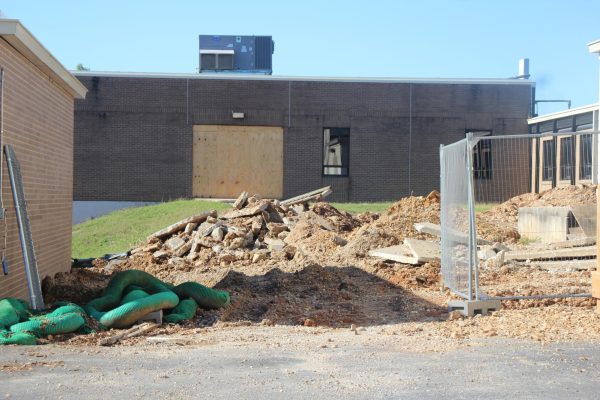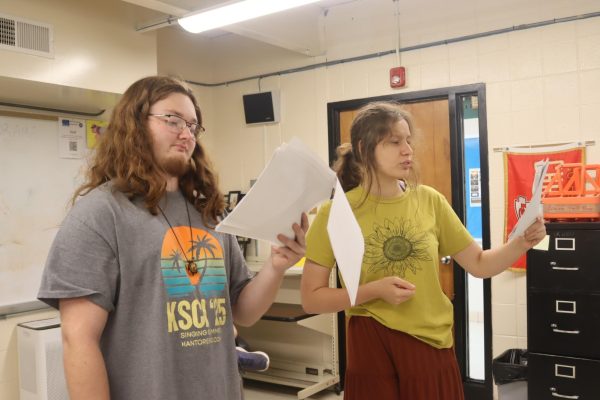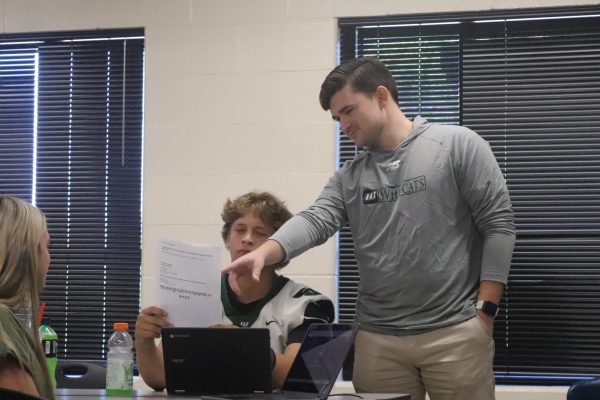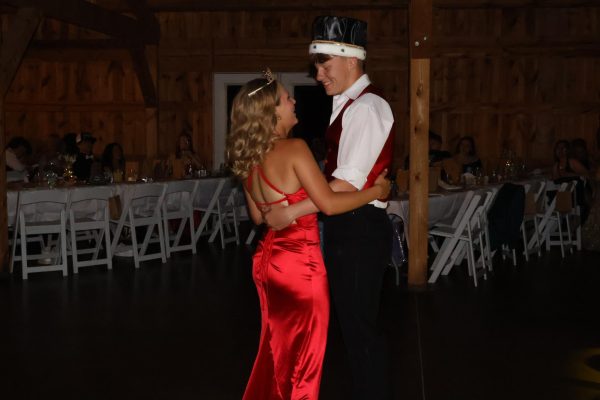Students recognize advantages and disadvantages to small schools and towns
The impact of growing up in a small town and attending a small, rural high school has its pros and cons. Some people may be oblivious to the fact that they are offered fewer opportunities because the small town of Warsaw is all they have ever known.
According to Janet Gonzalez-Mena in her article written for ChildCareExchange.com “Do you have Cultural Tunnel Vision” the limited diversity that is present in small town schools offer something that is considered a “tunnel vision.” This refers to having a lack of knowledge on different perspectives resulting mostly from the exposure someone has had during adolescent years. But, this is always up for debate if a person is actually affected. Students frequently voice their opinion on this topic.
“There are definitely diversity issues in schools and towns that are smaller, especially ours, but I feel like it hasn’t caused me any issues personally because I’ve grown up in a day and age with (smart) phones where it’s easy to get that information and stay informed,” senior Madeline Schockmann said.
Gonzalez also wrote about the fact that the more people are exposed to different cultures and different opinions than what they have been around their whole lives, the more a person can learn and grow.
Some students believe that because everyone knows everyone in such a small setting, there is a sort of overwhelming social pressure in the atmosphere of smaller schools.
Senior Aidan LeGrande has lived in the small town of Warsaw his whole life and offers his insight on the burden of doing so with his fellow peers among him.
“I kind of feel like there’s a lot of pressure to fit in with our smaller cliques at our school and if you don’t do all the things that all the kids do in that clique, then you’re not accepted,” LeGrande said.
Another perspective that can be considered is the idea that smaller schools offer more social opportunities in terms of making friends easier, or allowing students to feel more comfortable in the place they spend most of their time.
In the article “5 Social Advantages of Small Schools” found on tennyschool.com it is mentioned that small schools give shy students the opportunity to blossom within the classroom. According to their research, students on average receive lower grades in college compared to high school because of fewer opportunities for teacher-student relationships. It is easier for students to speak up and ask questions in the classroom if they are comfortable with the environment that they are in.
There is a sense of family-like pride present in smaller schools and many people value this.
“I think the many traditions that we have at Warsaw make me personally take pride in where I come from,” junior Ally Wenberg said.
While Wenberg has only ever attended Warsaw schooling, she says that she has been familiar with the surrounding schools and their way of doing things.
In bigger schools it’s common to go class to class and not see a familiar face in the hallway, and that is something that in smaller schools, can be taken for granted.
“I like my small town because there are fewer people to worry about and it is not too crowded, it makes things like knowing people and traffic a lot easier,” junior Jason Eierman said.
Eierman has moved from school to school, but, for the most part, has been around a small school environment.
The convenience of knowing a majority of whom students spend most of their time with sometimes has an impact that might be going unnoticed. Students can say it is a nice change going from a big school to a smaller-populated school.
”I moved from a way bigger school and I like the small school better because you’re able to have a better relationship with the teachers and you’re able to have more genuine relationships with people,” senior Harrison Whitebread said.
Whitebread moved to the small town of Warsaw his senior year after spending his whole life in Fort Osage school district.
Aside from the social advantages, there are some disadvantages present in a less populated school, including exposure to a diverse curriculum.
Bigger schools provide more opportunities, such as a greater selection of classes and different extracurriculars that appeal to a broader amount of interests present in schools.
Senior Lily Tyler speaks on this by saying that she wishes Warsaw offered as many foreign language classes as her previous school she was at, Lees Summit. Tyler says that she was offered to take French, German, Manderian, Spanish and ASL (American Sign Language). When she moved to Warsaw, the chance of only being offered Spanish and French with no on-site teacher was a big modification in her high school plan.
“I came from a much bigger school and I had my schedule pretty much made up when I was there. When I came to Warsaw, I had to completely change my plans depending on the small options that I had available to me,” Tyler said. “I was really disappointed with the foreign language department because with how diverse the world is and the different opportunities in the workforce, foriegn language is starting to be really important.”
In contrast to this idea, small school curriculum still has a lot to offer when it comes to broadening students thinking.
For example, junior Taylor Spry said that her whole life she was confident she wanted to become a doctor, but when a psychology class was offered at Warsaw taught by Nathan Copling, Spry reconsidered her choice in profession because of a newfound interest in the topic of psychology.
“I think if I didn’t take Mr. Copling’s class, I wouldn’t have ever considered psychology as something I want to do, so I’m glad that I got the opportunity to take that class,” Spry said.
Nevertheless, smaller towns and schools have many different kinds of impacts students may not recognize until they are taken out of their surroundings. Whether or not students take pride in the schools that they grew up in, it is these very schools that shape and mold the young adults into the people they are to become..
“I have been going to a small school and living in a small town my whole life but I don’t regret this in the slightest. This town has made me who I am and I am grateful for it,” senior Reagan Shelby said.
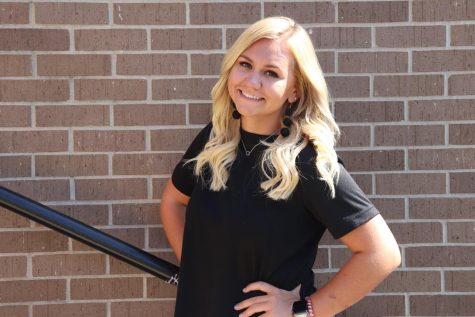
Senior Rheanna Coke has been dedicated to journalism for her entire high school career. She is in her fourth year of journalism. Her freshman year, she...

